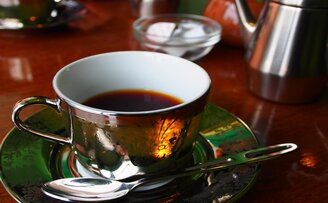There’s a whole subculture of coffee aficionados out there looking for the next great brew – a brew that will tantalize the senses in a way no other one has, and they will go to great lengths to find the one the stands out among the pack, whether it’s because it’s rare, grown on special soil, or in only one climate or region on earth. For those who want that perfect coffee for your pour over, one fits neatly into all three categories: Kona coffee.
What is Kona Coffee?
Kona coffee is named for its land of origin, the island of Kona in Hawaii. Despite being known as the “Big Island,” Kona is actually a relatively small mass whose soil is specially-enriched by the nutrients exuded by the volcano Mauna Loa. Kona Coffee beans are grown in the Kona coffee belt, which is a small swath of land in the midst of a tropical climate, where frequent rainy seasons make for perfect growing conditions.

Like all of the most sought after coffee for your pour over, Kona has many distinctions that make it highly desirable.
Scarcity
Kona coffee is grown in one small area on one island in one spot in the Pacific in the entire world, so its rarity alone is noteworthy. But what gives it its status as a premium coffee for your pour over is, obviously, its taste. Coffee aficionados are keen to tout the unique taste of Kona over other blends due to its combination of unique and ideal growth and preparation methods.
Growth and Harvesting
Kona coffee is not grown in farms and machine-harvested. Kona cannot be transplanted to a larger patch of land to be grown and harvested to the same effect. What makes Kona such a unique coffee for your pour over is the ideal growth and harvesting conditions native to the area; a nutrient-rich soil and climate combination found nowhere else gives this blend its signature characteristics.
Because Kona coffee is grown and not farmed, it is cultivated in a more traditional agrarian way. It is carefully matured and harvested by hand picking, which means the beans are much less likely to come in contact with damaging conditions. These intimate conditions are part of the appeal to many coffee buffs, particularly those with an ethical preference for fair trade and organic growth.
Regulations
Before you rush out to buy Kona coffee for your pour over, there are some things you need to know about how they are sold. In many cases, Kona coffee is sold as a blend, meaning that rather than purely containing Kona coffee, the blend also contains other, more common coffee subtypes as well. This allows for branding of Kona coffee, but with a reduced cost for higher profit margins.
Kona coffee is sold under strict regulations to protect the farmers. Any mixed bags containing Kona coffee must identify it as a blend and specify the percentage of Kona coffee contained in it. Be aware that the Kona coffee for your pour over you just bought might only contain 10 percent or less of actual Kona coffee! When searching for good Kona coffee, make sure to keep these labeling particulars in mind so you know you’re getting the right thing.
Kona Coffee for Your Pour Over
With all of these qualities going for it, it’s no wonder Kona coffee ranks high in lists of the best coffee for your pour over. Quality coffee means quality methods. For premium coffee, you want to add a personal touch. Stash away that percolator and reach for a ceramic pour over dripper from Kajava Mama for coffee made to perfection every time. Click here to learn more.